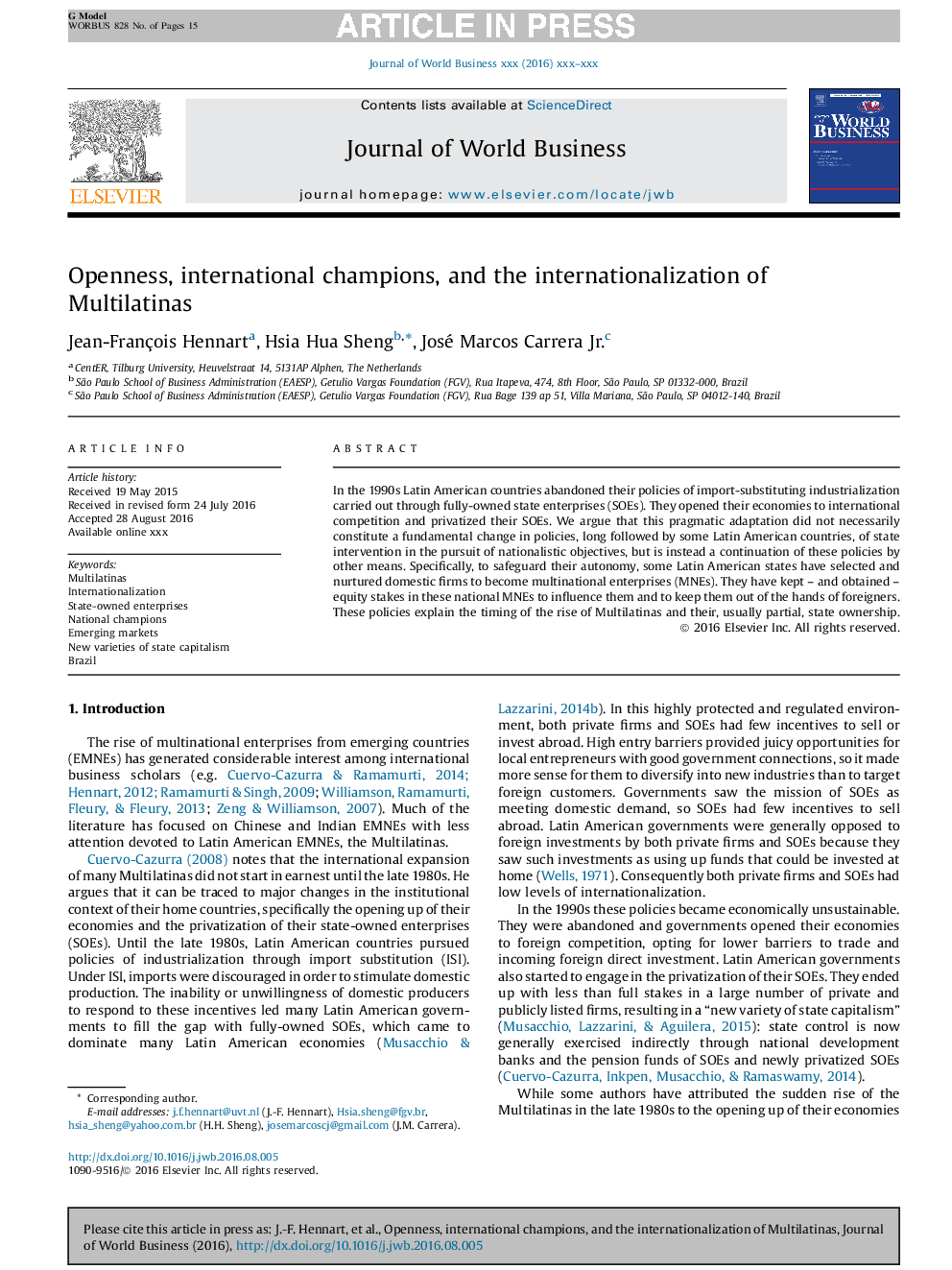| Article ID | Journal | Published Year | Pages | File Type |
|---|---|---|---|---|
| 5107155 | Journal of World Business | 2017 | 15 Pages |
Abstract
In the 1990s Latin American countries abandoned their policies of import-substituting industrialization carried out through fully-owned state enterprises (SOEs). They opened their economies to international competition and privatized their SOEs. We argue that this pragmatic adaptation did not necessarily constitute a fundamental change in policies, long followed by some Latin American countries, of state intervention in the pursuit of nationalistic objectives, but is instead a continuation of these policies by other means. Specifically, to safeguard their autonomy, some Latin American states have selected and nurtured domestic firms to become multinational enterprises (MNEs). They have kept - and obtained - equity stakes in these national MNEs to influence them and to keep them out of the hands of foreigners. These policies explain the timing of the rise of Multilatinas and their, usually partial, state ownership.
Related Topics
Social Sciences and Humanities
Business, Management and Accounting
Business and International Management
Authors
Jean-François Hennart, Hsia Hua Sheng, José Marcos Jr.,
